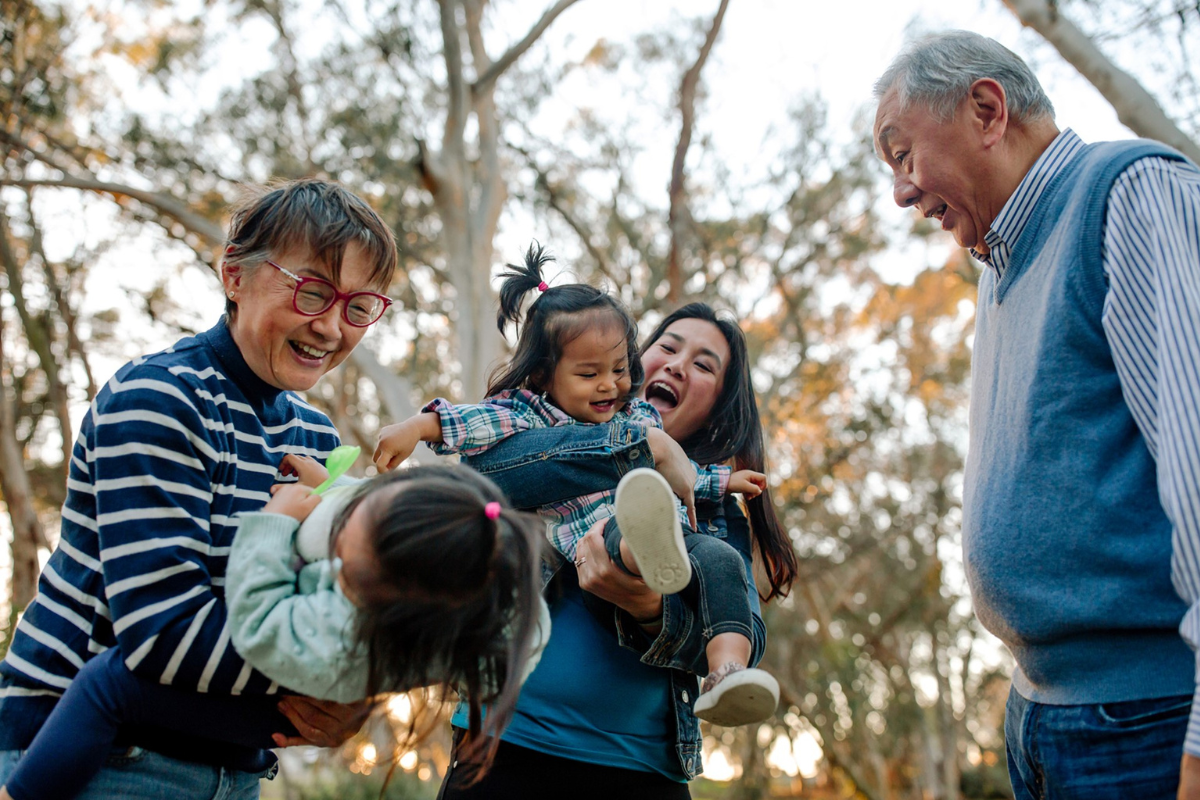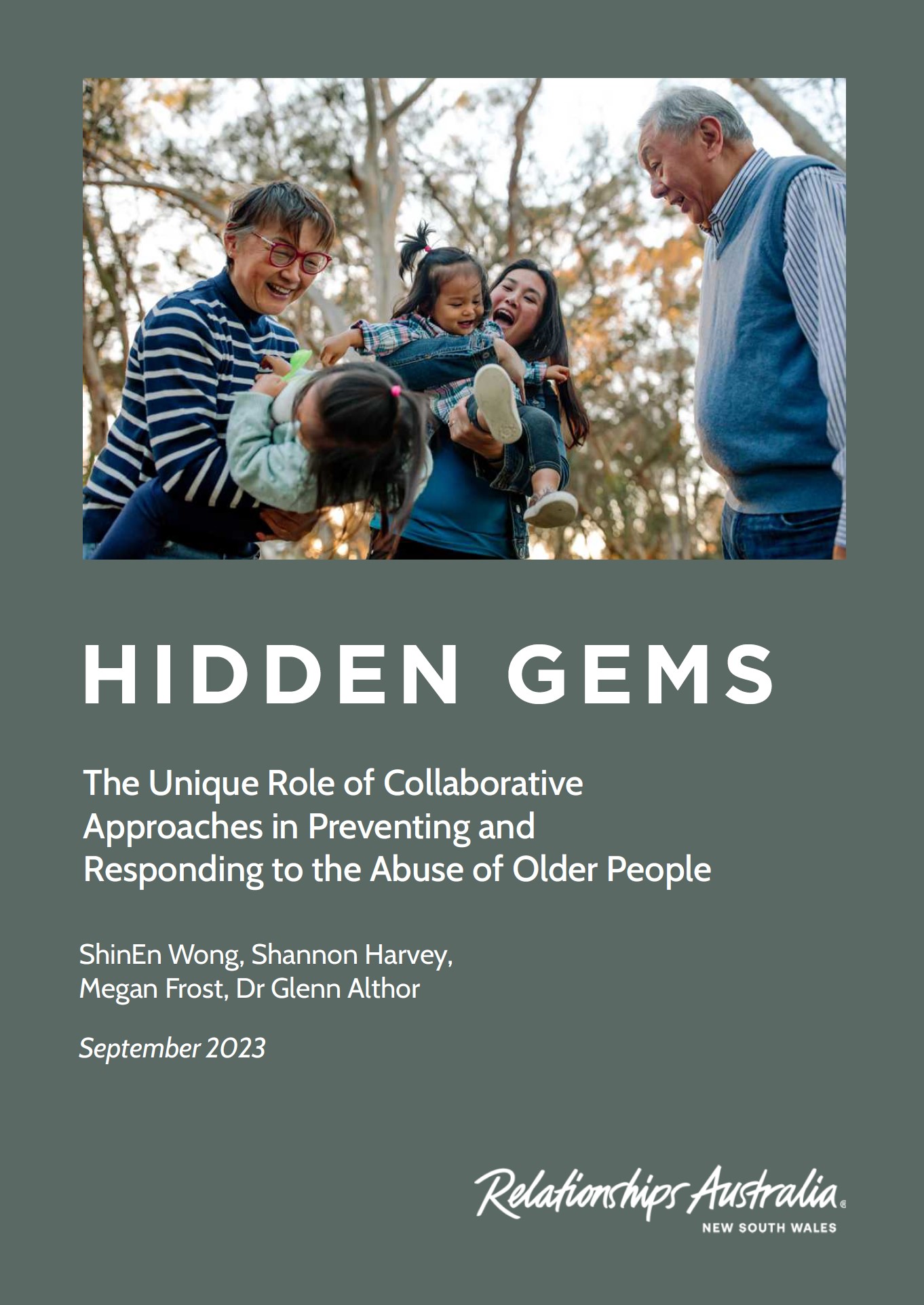The abuse of older people is a pervasive issue that demands attention and intervention. And, as Australia’s population continues to age, the complexities of the issue are becoming more apparent.
With 15% of people aged 65 and older experiencing physical, psychological, financial or sexual abuse in Australian communities, this is not a problem we can ignore
In response to this pressing concern, in 2018 we introduced our Let’s Talk Elder Mediation and Support Service. This service supports older people and their families to address age-related conflict and abuse, and to make decisions that protect older people’s rights and safety.
Five years on, we’re reflecting on the progress that’s been made, the challenges that persist, and what the path forward for effectively addressing abuse of older people looks like, in a new report.
Key findings from the Hidden Gems report
In this study, our team looked at our Let’s Talk program to find out how well it’s working, what we’ve learned so far and how to make it better in the future.
Through interviews, focus groups and policy document analysis, they found that:
- Older people deserve greater political ambition. National commitments must be brought into line with those on violence against women, investing in action to not only prevent violence, but to end the abuse of older people.
- Political and media attention has increased public awareness of the abuse of older people, supporting people to identify abuse and access services. However, ageism in the media presents an ongoing risk of enabling abuse.
- Australia’s ageing population is creating greater demand for services, and greater complexity of support needs. Intersections of geography and climate risks, disability, identity-based marginalisation, and population-wide economic distress require coordinated service responses.
- Older people experiencing abuse and their family members need a range of service options in addition to legal intervention. As demand for services increases, investment is required to ensure existing providers retain and expand their supports, rather than narrowing what they offer to be able to serve more people.
- Older people experiencing abuse need collaborative service models that engage their family members outside the legal system. Many older people want or need to maintain their family relationships and need non-adversarial, non-criminal routes for support.
- Collaborative service models such as Let’s Talk are a unique and critical offering within the service system responding to abuse of older people. We found that people valued its specialist blend of conflict resolution, counselling, and casework for its empowerment of older people, its ability to engage family members productively, and its capacity to facilitate service coordination and education.
- Endemic ageism in Australian society remains a contributing factor to abuse, and a barrier to identification of abuse and effective responses. Working towards ending the abuse of older people will require a long-term strategy to address social, structural, and institutional ageism.
- Investment is needed to continue innovating collaborative models, building on the existing strengths of elder mediation and support services. Innovation requires support for research and evaluation, to develop and apply models in local contexts and understand efficacy.
“We believe that family mediation in relation to older people is an essential part of the elder abuse architecture and I’m more convinced of that today than I’ve ever been.”
– NSW Ageing & Disability Commissioner.
The next five years
The last five years have seen significant progress in the response to abuse of older people, but there’s still a long way to go.
Australia’s aging population, coupled with increasing awareness of the abuse of older people, will undoubtedly result in a growing demand for services. To meet this challenge, we must continue to strengthen and expand collaborative approaches and invest in addressing ageism across Australian society.
The collaborative model we use in our Let’s Talk Elder Mediation and Support Service remains as relevant as ever. By focusing on relationships, collaborative approaches offer opportunities to centre older people’s voice and rights and strengthen families’ capacity to work together respectfully into the future.







